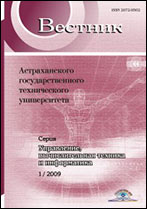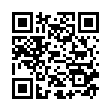|
|
Vestnik of Astrakhan State Technical University. Series: Management, Computer Sciences and Informatics, 2016, Number 1, Pages 98–104
(Mi vagtu422)
|
 |
|
 |
INFORMATION TECHNOLOGIES IN EDUCATIONAL ACTIVITY
Electronic distance learning with the use of the service web 2.0
L. B. Aminula, L. V. Chaykab
a Astrakhan State Technical University
b Omsk State Technical University
Abstract:
The article deals with the basic aspects of e-learning with the use of distance learning technologies web 2.0. It identifies a number of assumptions that affect the shape of the educational process: the need for continuing education, education on the job; an individual training schedule, geographical conditions, the level of use of information technologies at the university. There are problems in the electronic and distance learning solutions. The specifics of building asynchronous (offline) and synchronous (online) learning is discussed. For the formation of electronic educational content, the paper considers educational potential of new web-based technologies (wiki-media, as a joint instrument of systematization and accumulation of knowledge; social services as a tool for implementing the non-standard educational approaches in real-time; services of applications to work on the joint projects and collaboration with the regime of access from any device). To control the electronic educational content, a modular learning environment Moodle, which allows you to accumulate a large amount of structured information in the educational topics is considered. The basic components for the design of electronic resource: information content, laboratory practical work, thematic tests and interactive components are identified. As a practical implementation of the technologies of distance learning using platform Moodle an educational web-portal is designed and implemented. In the framework of the project aimed at the development of professional IT-education IT-experimental courses in the disciplines of "Information Security" and "Project Management" are designed and successfully implemented The proposed educational technology can significantly improve the quality of educational activity for all levels and forms of education.
Keywords:
distance learning, educational content, web 2.0, educational technologies, joint work, learning environment.
Received: 18.01.2016
Citation:
L. B. Aminul, L. V. Chayka, “Electronic distance learning with the use of the service web 2.0”, Vestn. Astrakhan State Technical Univ. Ser. Management, Computer Sciences and Informatics, 2016, no. 1, 98–104
Linking options:
https://www.mathnet.ru/eng/vagtu422 https://www.mathnet.ru/eng/vagtu/y2016/i1/p98
|

| Statistics & downloads: |
| Abstract page: | 186 | | Full-text PDF : | 94 | | References: | 63 |
|




 Contact us:
Contact us: Terms of Use
Terms of Use
 Registration to the website
Registration to the website Logotypes
Logotypes








 Citation in format
Citation in format 